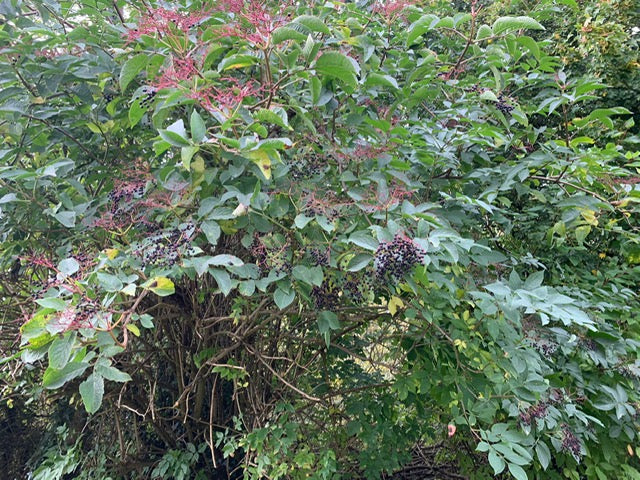Elderflower: the flower that's as old as time, and yet still as fresh as a daisy. This unassuming white flower has been gracing our hedgerows and woodlands for thousands of years, and with good reason. Not only does it provide a vital source of nectar for our buzzing bee population, but it also helps to combat climate change by absorbing carbon from the atmosphere. Now that's what we call multi-tasking!
Native to Europe and parts of Asia, elderflower (Sambucus nigra) is a staple of the British countryside. It can be found growing in hedgerows, woodlands, and even in the gardens of country cottages. But don't be fooled by its delicate appearance - elderflower is a tough customer, and can withstand harsh weather conditions that would make other flowers wilt.
One of the most fascinating things about elderflower is its role in biodiversity. As well as being a vital source of food for bees, butterflies, and other insects, it also provides shelter for small mammals such as voles and mice. And if that wasn't enough, elderflower also acts as a host plant for a number of moth species, including the beautiful and elusive elder pearl (Phlyctaenia coronata).
But perhaps the most intriguing thing about elderflower is its place in folklore. In many cultures, elderflower is seen as a symbol of renewal and rebirth. In Norse mythology, it was believed that the goddess Freya lived in an elder tree, and that the tree was guarded by a serpent. In some parts of England, it was believed that sleeping under an elder tree would bring good luck and ward off evil spirits.
And of course, we can't forget about elderflower's culinary uses. The fragrant flowers are a staple ingredient in many dishes, from elderflower cordial to elderflower fritters. But if you're feeling adventurous, why not try making elderflower champagne? It's a delicious and refreshing summer drink that's sure to impress your friends.
So there you have it - elderflower may be small, but it's certainly mighty. With its ability to support biodiversity, combat climate change, and delight our taste buds, it's no wonder that this little flower has captured our hearts for generations. So next time you're out for a walk in the woods, take a moment to appreciate the humble elderflower - it may just surprise you.

